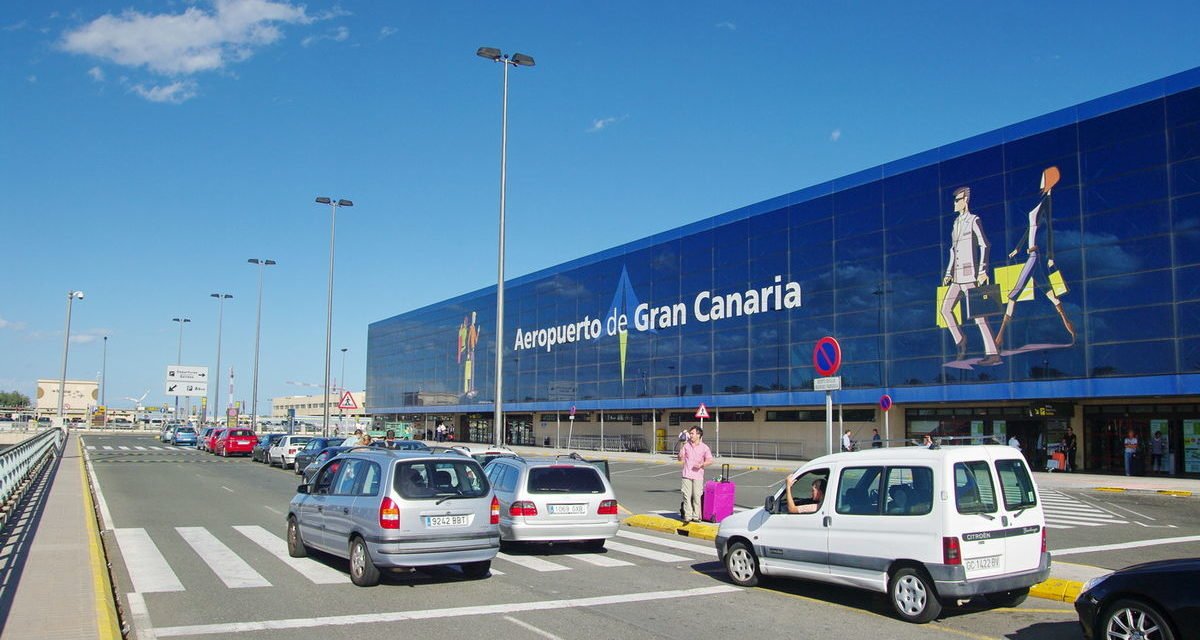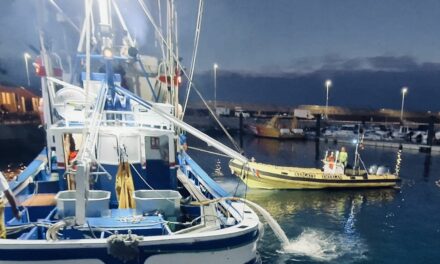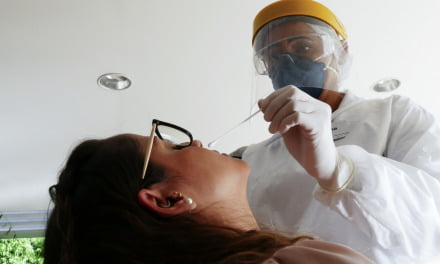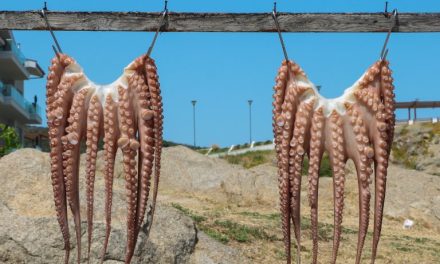When, six months later, the Spanish Government and the EU had not yet announced testing for travellers and how it might affect the Free Movement of Peoples, a pillar of the union itself, The Canary Islands managed to come up with a regional tourism regulation which, although it could not be applied to airports, meant that all tourist accommodation on the islands were required to verify a negative test result, either PCR or antigen, before allowing any foreign traveller to check in to a hotel or tourist apartment. No sooner had that been announced, along with the hope of saving the main winter tourist season for the archipelago, than Spain eventually decided to allow tests for travellers at airports, specifically requiring a PCR test result from anyone arriving from a high risk territory. In the mean time, over the weeks that followed, and while winter bookings remained dismally low, the European Commission announced their recommendation that rapid antigen tests be accepted as well as PCR tests for international travellers. Subsequently, last week, the European Commission also recommended that travellers within Europe need not be systematically tested at all, saying that the risk in transit is very small and that efforts should instead be concentrated on giving the best information regarding both origin and destination for travellers to ensure they follow those regulations in place to control infection at either end of their journey.
It is worth also noting at this juncture that the completely separate migration crisis, that has also occurred this year, has played no part whatsoever in the woes of the tourism industry, it is in fact COVID-19 that has largely been responsible for both scenarios, if not the driving force. Even in 2006, the worst year on record for irregular migration, when nearly 32,000 migrants arrived on these islands (12,000 more than this year), the archipelago was able to cope with a record breaking 10 million+ tourist arrivals, and numbers were not adversely affected in the years that followed. The primary culprit for our failing to recover bookings this winter has been exclusively based in the failure to agree safe and affordable testing protocols for holidaymakers and confusion over which administrations announcements must be complied with, whether regional, national or EU.
The Canary Islands have been urgently waiting for a response from Spain’s Ministry of Health regarding the acceptance of antigen tests for travellers, as well as PCR tests, aimed at international holidaymakers arriving to the archipelago. From Thursday, based on a decree announced last week and published this Wednesday in the official regional gazette (BOC), foreign tourists will be allowed to show either type of test result as evidence that they are not infected with Covid-19, stepping outside of, and beyond, what is detailed in the existing law for entry to any Spanish territory from a high risk country.
Spain stipulated that as of November 23rd of this year that only PCR test results would be valid, as established by state regulations, but now the Canary Islands Government, which already had a regional tourism law in place, from November 14, accepting either PCR or the cheaper rapid antigen detection tests for entry to tourist accommodations, have taken the view that under existing regional powers, they can and will extend what type of tests for travellers are acceptable also. The Regional Government are doing everything they can to try to salvage the winter tourist season, something that is seen as impossible if potential visitors are forced to pay up to €150 per person for a PCR test, even as the pandemic continues to rage. An English or German family of four under current rules would have to pay around €600 extra to travel here while their countries remain on the High Risk list, maintained by the ECDC from which Spain then modifies its own list.
The regional government gave notice to the Spanish Health Minister, Salvador Illa, last week regarding their finalising of a regional decree law to also validate the antigen tests. The Canary Islands and President Torres himself have been asking the Cabinet of Prime Minister Pedro Sánchez for weeks to exempt the Canary Islands from these state-wide regulations, to take account of the excellent epidemiological situation in the Archipelago, which has remained as the best in Spain and all Europe, as well as building evidence that whether tourists present either a PCR or an antigen test result upon arrival in itself is unlikely to adversely affect the islands, but could be vital for our economic survival. The regional government has been echoing demands of the tourism employers, who have urgently sought the avoidance of a definitive closure for hundreds of companies and the dismissal of thousands of workers, based on blanket restrictions across Spain that do not reflect the reality here on The Canary Islands.
Though the United Kingdom and Germany have been willing to include the islands, if not all of Spain, on their lists of safe territories for travel, tourists are being required to submit a PCR test result and this has meant a reluctance to book from the two biggest source markets for Canary Islands tourism. Antigen tests are not only cheaper and give results much faster, they also have the backing of community authorities, including the European Commission, and are endorsed by the European Centre for Disease Prevention and Control (ECDC), which means definitive support for the Canary Islands Autonomous Community in its discussions with the State. However, Spain’s Ministry of Health has still not agreed to exempt the Archipelago from requiring the PCR – Minister Illa did not respond yesterday to questions regarding whether or not he was aware of the imminent publication of the regional decree and about its position on the matter – however President Torres and the regional executive have taken the view that, under existing State of Emergency powers, the Canary Islands Autonomous Government is well within its remit to go a step further and validate the antigen tests for travellers on their own initiative. It still remains to be seen how Spain’s central government will respond.
To make this work, in a legal sense, the president’s decree has had to establish what is called a “perimeter closure” for the Autonomous Community and regulate, in a complimentary way, requirements that in terms of public health must be met upon entering the islands. Specifically the Canary Islands region have taken into account that President Torres, along with the other 16 regional leaders across Spain, are directly instructed in the current law regulating the state of emergency, to act as the competent authority in their respective territories. Therefore, by explicit delegation of powers from the central government they are empowered to decide and legislate regulations in this regard. These devolved powers, for example, included the right to decide whether or not to establish the night-time curfews imposed across much of Spain in the last couple of months, something which the Canary Islands did not put into practice, due to the great success achieved so far in controlling infections. It was not until last week, that the Canary Islands announced that there would be some stricter limitations to gatherings and decided to include some very limited restrictions on night time movement over the holiday period. Regional presidents therefore, goes the argument, have a certain range of action with which they can modulate particular measures stipulated by the State. However it is worth noting that this range of action does not include regulations regarding the crossing of territorial borders, which is an exclusive matter for the Spanish State.
“For access to the archipelago from abroad, PCR (RT-PCR) and rapid antigen detection tests are to be admitted as diagnostic tests for active SARS-COV-2 infection according to their corresponding standardisation. The decree, which establishes the “perimeter closure of the Autonomous Community”, does not make it impossible for travellers to access the region, but rather regulates secure entry using systems that are accessible and affordable. This decree is based on the powers derived from the State of Emergency – whose delegated competent authority is the regional president -; it is based in the fact that the Canary Islands are an Ultraperipheral Region (RUP) within the European Union; the Statute of Autonomy; indications from the Public Health Department and microbiology technicians; and accumulated experience with the tourism law decree that established the obligation to present an antigen test certificate or PCR with a negative result in regulated accommodation in the Canary Islands. In this sense, the pioneering system promoted by the Government of the Canary Islands has proven to be reliable, since over the last five weeks, when around 250,000 travellers have arrived on the islands, very few tourists have tested positive. The Government of the Canary Islands is maintaining negotiations within the framework of an open understanding with Spain’s Ministry of Health to harmonise the regional standard with the national one. In addition, progress is being made in the regulations that will establish the controls on national travellers (from within Spain) – in agreement with the Government of the Balearic Islands, – as well as of Canarian residents in peninsular territory who plan to return to the Canary Islands, especially for Christmas.” Canary Islands regulates the sanitary control of international travellers through antigen tests
Canary Islands regulates the sanitary control of international travellers through antigen tests
So the entirety of this new decree published yesterday rests on the idea that it does not violate any State competence; the decree is based on the understanding that it is the Spanish State itself, having delegated power to the regional presidents, that has made it possible for this region to decide to validate antigen tests as well as the PCR requirement stipulated by the State.
#Canarias regula el control sanitario de viajeros internacionales por medio de test de antígenos
El Ejecutivo apela a su condición de autoridad competente delegada, de región ultraperiférica, al Estatuto de Autonomía y a la experiencia acumulada durante 5 semanas con esa fórmula
— Presidencia GobCan (@PresiCan) December 9, 2020
Ángel Víctor Torres and his cabinet argue that the external border regime includes “the control of compliance with the rules of access” to the territory, and that this is determined by the European Regulations, but point out that “it does not include the establishment of public health access requirements, but their mere verification”, and so the Canarian president has used this nuance to dictate regulations in regard to how compliance is to be verified, without de facto meddling in the regulation of external borders. The Canary Islands Executive, therefore, has moved forward with the interpretation that the central government’s border regime established in the State of Emergency decree covers “compliance” with public health standards but not the “establishment” of specific public health standards. And therein lies the slight of hand:
Under this premise, the Canary Islands regional government restricts entry to international sea or air passengers who do not undergo health control upon arrival. Control that includes a responsible declaration, so that health authorities know, for example, where you are going to stay; taking your temperature; and a diagnostic test that proves you are free of coronavirus. You can present the result of a test carried out within the 72 hours prior to your arrival or have it done at the same airport or at the sea port. And both the PCR and those rapid antigen detection tests, that are duly approved, will be valid. There are exceptions included for those returning home, those who coming for work reasons, such as journalists, and those who travel for any other reason of force majeure, who will not necessarily be subject to the same obligation to be tested. Similarly tourists booked to stay in a hotel, apartment or similar, must, under the Canary Islands regional law in force since November 14, prove upon arrival at the accommodation that they have successfully passed a coronavirus test, meaning that in their case it should be enough when travelling to make a responsible declaration that they plan to leave the airport to head straight for the hotel, where their results are to be verified. Furthermore, there are those tourists who have contracted their tests already with their tour operator, meaning the requirement to have had the test has already been verified upon arrival, and can be confirmed.
Strictly speaking, in the narrowest sense, this finely balanced legal framework, which will be in force until at least January 10, replicates, line by line, most of the existing Spanish state regulations, but provides extra detail on the regional compliance with implementing a control regime for tests for travellers and foreign tourists who enter with an antigen test, and does not seek to only limit compliance to those who have had a PCR result (the control regime for national travellers, within Spain, remains a matter for separate debate).
Of course, it is still the Spanish State that must “comply” with these regional regulations, according to this interpretation by the Regional Executive, and so the decree, published last night, specifically calls for the “collaboration” of the Security Forces and other Institutional Bodies and for Foreign Health Service administrations, who look to Madrid, to comply with the new regional decree.
One last point to note is that to date no-one yet who has arrived onto the islands, without the PCR, has been fined. The de facto preference has been to conduct an antigen test at the airport, allowing the traveller to continue on their way with their test result in hand. Though if Spain wanted to it could much more stringently enforce the existing tests for travellers regulations, with fines of up to €6,000 envisioned in the original legislation. Though those few travellers who have been arriving have mostly tended to comply with the requirement to carry their test results with them throughout their journey, many say that there has been little or no control, enforcement or even verification that they have them with them. Nevertheless it remains the law of the land that all arrivals into Spain from a High Risk territory must be able to present, on demand, a test result proving they are not suffering from COVID-19. Time will tell if any changes are made to that state of affairs.













